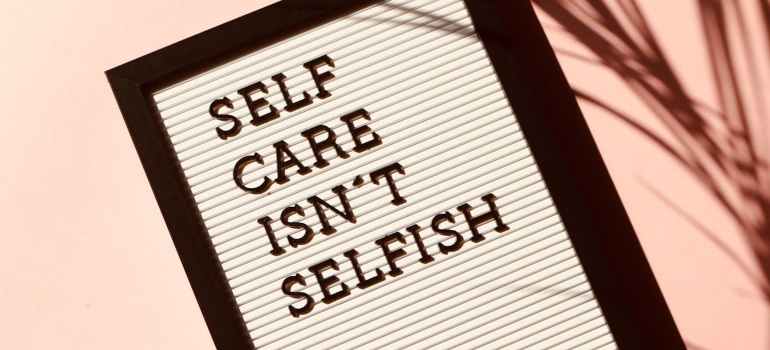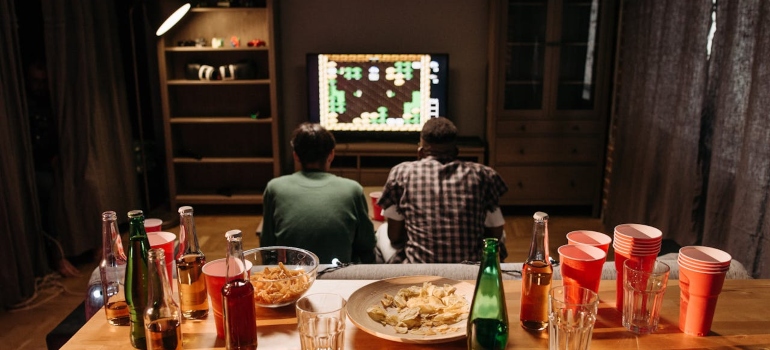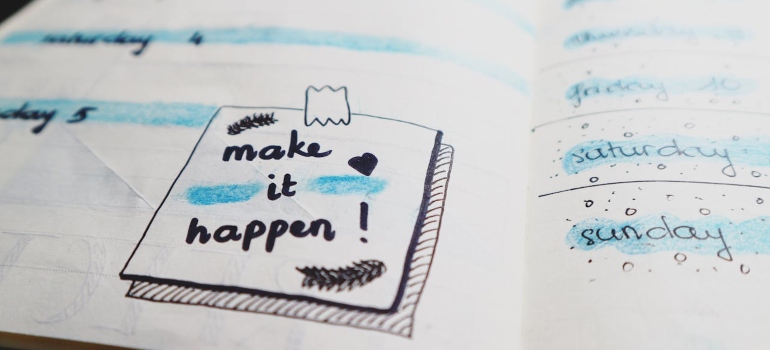Binge drinking and depression are closely linked. Many people turn to alcohol to cope with stress, sadness, or anxiety. However, binge drinking can make feelings of depression worse. So, if you are struggling with binge drinking and depression, you are not alone. Many people have found ways to break free from this cycle and lead healthier, happier lives. It may feel overwhelming, but taking the first step toward getting help is a powerful decision. If you’re looking for support, Harmony Ridge Recovery Center WV can offer a safe and structured environment to help you address both alcohol use and mental health. So, this article will guide you through understanding the connection between binge drinking and depression, the signs to watch for, and the steps you can take to recover and rebuild your life.
The Connection Between Binge Drinking and Depression
So, if you want to find the connection between binge drinking and depression, you should ask yourself two questions:
- Is binge drinking linked to depression?
- Why do I feel depressed after binge drinking?
Young people living and studying in West Virginia should know that balancing education and recovery is possible. Our center offers programs for both alcohol misuse and mental health in different settings, that can be incorporated into everyday life.

Is Binge Drinking Linked to Depression?
Alcohol affects brain chemistry, especially the parts of the brain that control mood and emotions. At first, drinking may seem to provide temporary relief from sadness, stress, or anxiety. Alcohol can give people a short-term sense of happiness or calm. However, it also affects important chemicals in the brain, like serotonin and dopamine, which are responsible for feeling good. Over time, alcohol disrupts the balance of these chemicals, leading to feelings of sadness, anxiety, and depression. An alcohol rehab center Cambridge OH residents rely on can provide the support you need to heal. These centers offer structured treatment plans that address both alcohol use and underlying mental health issues, helping individuals improve their emotional well-being.
The more someone binge drinks, the more their brain becomes dependent on alcohol for temporary mood lifts. This creates a cycle: after drinking heavily, the person feels better for a short while, but later, they experience a low mood, anxiety, or even a deep depression as the effects of alcohol wear off. In many cases, people who struggle with binge drinking may also experience symptoms of depression, such as a lack of energy, sadness, hopelessness, and difficulty enjoying activities they once loved. So, to break this cycle, individual therapy for addiction can be beneficial. Therapy provides a safe space to explore the underlying causes of both alcohol use and depression. It helps individuals develop healthier coping mechanisms, and work toward long-term emotional stability.

Why Do I Feel Depressed After Binge Drinking?
If you have ever wondered, “Why do I feel depressed after binge drinking?” you are not alone. The answer lies in how alcohol affects neurotransmitters in the brain. Neurotransmitters are chemicals that send signals between brain cells, controlling things like mood, behavior, and emotions. So, when you drink alcohol, it changes the balance of neurotransmitters. While alcohol may provide temporary feelings of euphoria or relief, it disrupts the brain’s normal functioning. So, if you are dealing with both binge drinking and depression, the dual diagnosis treatment West Virginia has to offer can help you. This type of treatment addresses both mental health disorders and addiction at the same time.
One of the biggest neurotransmitters affected by alcohol is serotonin. So, this chemical plays a key role in regulating mood. Alcohol lowers serotonin levels, and once the effects of alcohol wear off, the brain struggles to restore normal levels. This leads to feelings of sadness, anxiety, or depression after drinking. It is common to feel emotionally drained or unmotivated the day after binge drinking, a condition sometimes referred to as “hangover anxiety.”
In addition to the changes in neurotransmitters, binge drinking can cause physical and emotional crashes. Alcohol can dehydrate the body and disturb sleep, leaving you feeling tired and irritable. Lack of sleep can also worsen feelings of depression and anxiety. Many people experience a mental and emotional slump after drinking too much because their bodies are working hard to recover from the effects of alcohol. If you are struggling with both alcohol use and depression, medication assisted treatment West Virginia residents trust the most can help. This treatment combines therapy with drugs that help manage cravings and ease withdrawal symptoms, providing relief during the recovery process.

On top of these physical effects, binge drinking can bring on feelings of guilt or shame. So, if you have struggled with alcohol use, you might feel bad about your behavior or the things you said while intoxicated. These negative emotions can lead to further depression. You may question your actions and feel hopeless about your ability to change. The more this cycle repeats, the harder it becomes to break free.
In some cases, people may turn to alcohol as a way to cope with their depression. But drinking can make things worse, not better. It provides a temporary escape from painful feelings but doesn’t address the root causes of depression. Over time, this worsens both binge drinking and depressive symptoms. So, one effective way to address both addiction and depression is through Rational Emotive Behavior Therapy (REBT). REBT for addiction helps individuals identify and challenge the negative thought patterns that drive both their alcohol use and depressive feelings.
Is Excessive Drinking a Symptom of Depression?
Excessive drinking can be a sign of depression. So, when someone feels overwhelmed by sadness, anxiety, or stress, they may turn to alcohol to cope. Binge drinking might feel like a quick escape from these tough emotions. At first, it may seem like alcohol helps lift the mood, making things feel better, even if just for a short time. However, alcohol doesn’t solve the root problem of depression. It can make things worse.
For some, alcohol becomes a way to numb the pain or avoid difficult feelings. But the more someone drinks excessively, the harder it becomes to manage emotions without alcohol. This creates a dangerous pattern: drinking to feel better, only to end up feeling worse later. Also, if you are struggling with this cycle, it’s important to know that treatment options are available, and insurance coverage can help. Blue Cross Blue Shield drug rehab coverage can help you access the care you need to break free from alcohol dependence and address your depression. So, with this coverage, you can receive treatment at accredited rehab centers that provide the support, therapy, and resources to help you recover.

So, if you find that you are drinking more than usual or using alcohol to escape difficult emotions, it may be a sign that depression is at play. Binge drinking and depression often go hand-in-hand, with one making the other worse. If you are struggling with both, it’s important to look for help. Therapy and support, such as the intensive outpatient program West Virginia provides, can help address the depression and teach healthier ways to cope with emotions, without relying on alcohol. So, addressing both mental health and drinking habits is key to breaking free from this harmful cycle.
How to Recover from Alcohol Depression: The Best Ways to Help Yourself
There are two best ways to recover from alcohol depression:
- Looking for Professional Help
- Personalized and Evidence-Based Therapies in Rehab
Looking for Professional Help
Recovering from binge drinking and depression is possible, and looking for professional help is one of the most important steps. Therapy and addiction treatment are key to understanding and breaking the cycle of alcohol use and depression. These treatments can help you address the root causes of both conditions. Rehab centers, such as those in West Virginia, offer accessible and structured care to guide individuals toward recovery. So, these centers provide a safe space where people can get the support they need, surrounded by professionals who are trained to deal with both alcohol use and mental health challenges.

Personalized and Evidence-Based Therapies in Rehab
In rehab, individuals receive personalized care tailored to their specific needs. So, one of the most effective therapies used in treating both binge drinking and depression is Cognitive Behavioral Therapy (CBT). CBT helps people identify negative thought patterns and behaviors that contribute to both alcohol use and depression. Medication-assisted treatment (MAT) is also used in rehab to support people with a dual diagnosis, meaning they are dealing with both alcohol addiction and depression. MAT can help reduce cravings for alcohol and ease withdrawal symptoms. It also helps regulate mood and prevent relapse by stabilizing brain chemistry.
Building a Sustainable Recovery Plan
Recovery is not just about stopping alcohol use. It’s also about building a new life with healthier ways to cope with difficult emotions. A sustainable recovery plan focuses on long-term mental health care and positive lifestyle changes. In rehab, individuals learn new coping strategies to handle stress, sadness, and other emotions without turning to alcohol. So, these may include mindfulness techniques, exercise, relaxation practices, and creative outlets like art therapy rehabilitation. Support groups play a big role in long-term recovery. Connecting with others going through similar struggles can provide encouragement, reduce feelings of isolation, and offer valuable advice. Lifestyle changes are also essential for building a strong recovery. Eating well, exercising regularly, and maintaining a regular sleep schedule all help improve mood and overall well-being.

Taking the First Step Towards Healing
Taking the first step towards healing from binge drinking and depression can feel difficult, but it is also the most important step. If you have been struggling with both alcohol use and depression, it may feel overwhelming to ask for help. But reaching out for support is the beginning of recovery. Remember, you don’t have to face this alone. There are many professionals in the State of West Virginia ready to help – such as Harmony Ridge Recovery Center WV. So, whether it’s through therapy, support groups, or addiction treatment, there are options available that can guide you toward healing.
The first step might be admitting that you need help, and that’s okay. So, it’s a sign of strength, not weakness, to look for support. It’s important to talk to someone you trust or contact a rehab center where you can get the care you need. These centers often provide safe, structured environments where you can begin to understand the connection between binge drinking and depression, and how to break the cycle. Remember that healing is a process, and it may take time. Don’t get discouraged if it doesn’t happen all at once. Every small step counts and each one is a sign of progress. The key is to keep moving forward and to stay committed to your mental and physical health. With the right support, you can overcome binge drinking and depression. There is hope, and recovery is possible.

Wrapping Up: The Final Thoughts on Breaking Free from Binge Drinking and Depression
Binge drinking and depression create a harmful cycle that can be difficult to break. However, it’s important to know that recovery is possible. With the right support, therapy, and treatment, you can overcome both binge drinking and depression. Also, no matter where you are in the process, remember that help is available, and there is always hope for a brighter future. You don’t have to face binge drinking and depression alone. So, with support, healing is possible!



